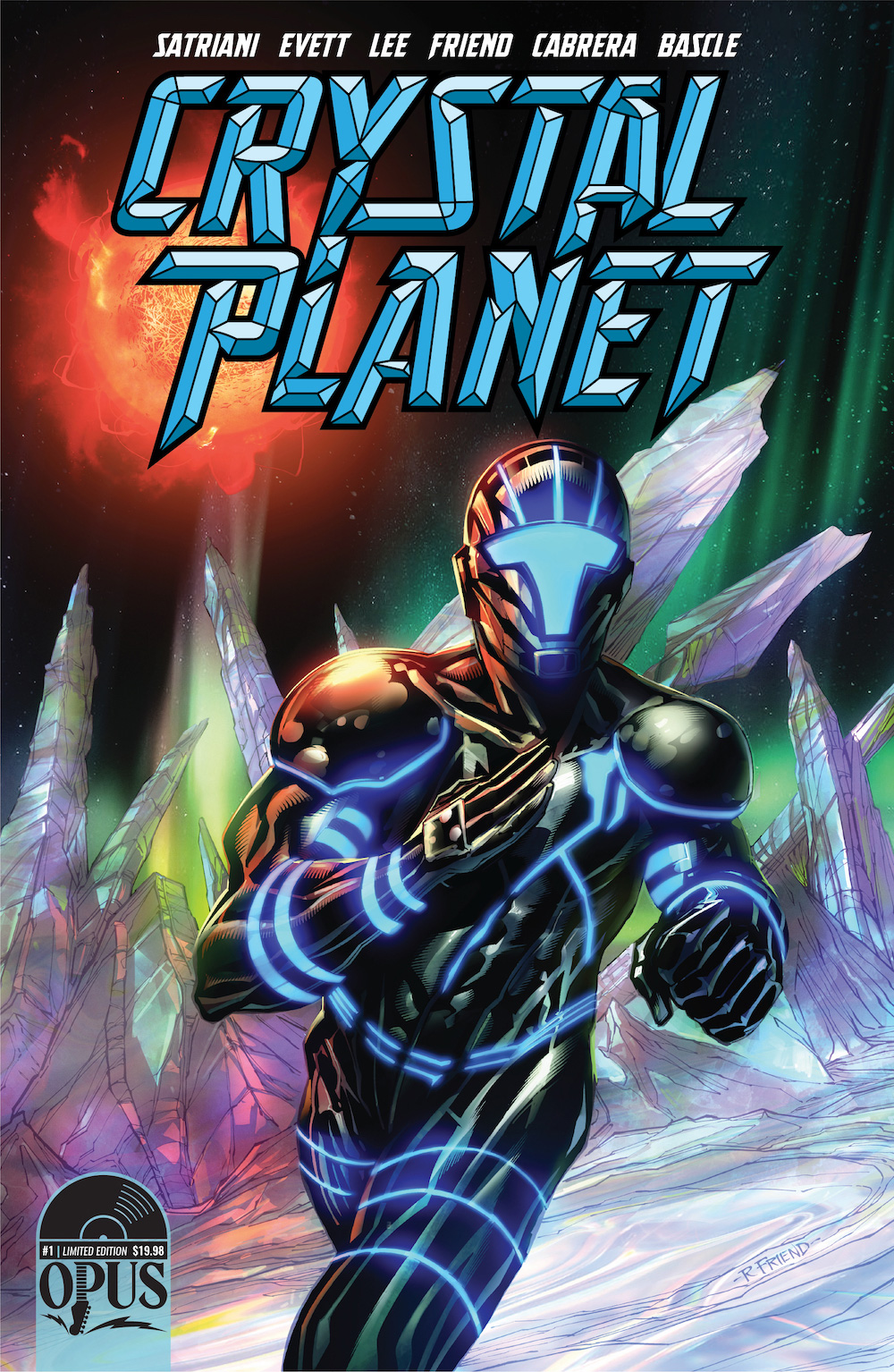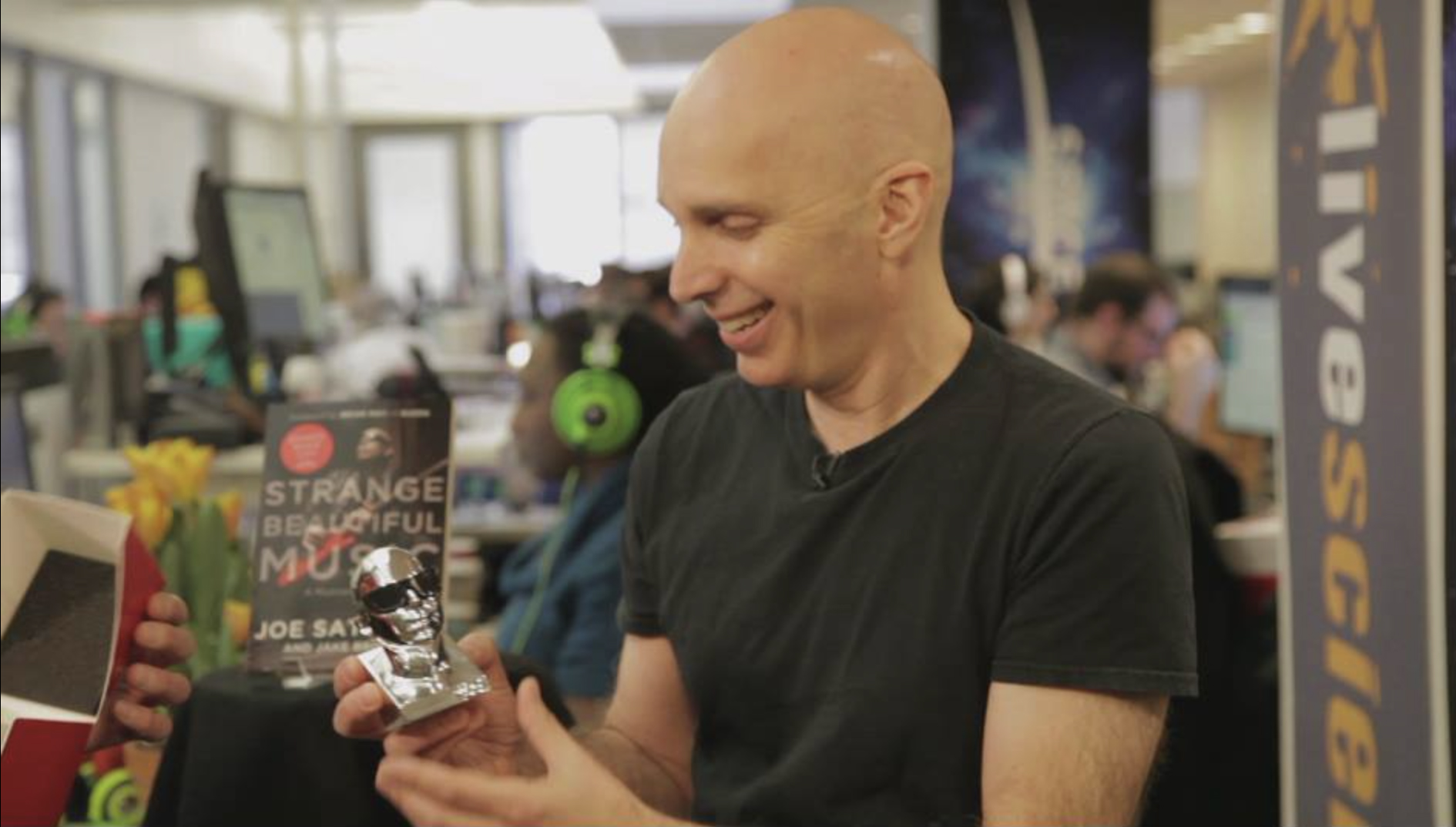How guitar legend Joe Satriani's love of space and sci-fi inspired his new album and comics
The guitar god's sci-fi adventures continue in comics and a new album.
From "Surfing with the Alien" to "Shockwave Supernova," guitar god Joe Satriani has taken cosmic artistry to another level for almost four decades.
Satriani's mind-blowing instrumental records have evolved into the sci-fi comic "Crystal Planet," a five-issue series that will hit stores in June. His latest record, "The Elephants of Mars," released this month, takes listeners on an imaginative journey to the Red Planet and Jupiter's moon Ganymede, the largest moon in the solar system.
In 2014, Satriani was the subject of Space.com's CosMix video series on space-enthused artists. He visited our New York office for a conversation about his book "Strange Beautiful Music: A Musical Memoir" (which he co-authored with Jake Brown), and we dug deep into his love of space and science fiction. And in 2015, he talked to us about the epic NASA New Horizons flyby of Pluto.
Related: Read excerpts from "Strange Beautiful Music: A Musical Memoir"
We had the pleasure of conversing with Satriani again about the "Crystal Planet" comic and his new record. (This interview has been edited lightly.)
Space.com: Thanks for joining me, Joe. Can you tell us how you got involved with the comics?
Joe Satriani: My writing partner and I started a little company called Satchtoons. His name is Ned Evett — great guitar player and singer, and turns out, super prolific when it comes to writing scripts and stories. We started Satchtoons, maybe eight years ago, with the idea that we would turn this little story we had dreamt up, called "Crystal Planet," into a full-blown epic adventure. And along the way, we wound up getting the attention of Llexi Leon at Incendium, who I've done some comic book work with in the past for his "Eternal Descent" series. And he, along with Opus and Heavy Metal magazine, really wanted to put out the comic. So it's really great that the series continues. We have the graphic novels coming out towards the end of this year, which is great, and the story is growing. But it all started with a video.
Breaking space news, the latest updates on rocket launches, skywatching events and more!
Satriani: Ned had landed a day job making some animated films, in-house films for a business. And he said, you know, I think he was just getting bored, I got all this equipment here, and I'm sitting here doing nothing. Maybe I can make a music video that you can play when you're on tour. So he asked me to pick a song from the new album and send it. So I sent him the song called "Lies and Truths" from my record "Unstoppable Momentum." And what he created was this funny two-dimensional sci-fi thing all based on my art book "2013," which was digital renditions of my sketches. And after watching that every night as we were on stage, I got the idea that this has some kind of heart and soul to it. Then we started having these two-hour phone conversations while I was traveling around the States, and it turned into "Crystal Planet." So it started innocently, and now it's a thing.
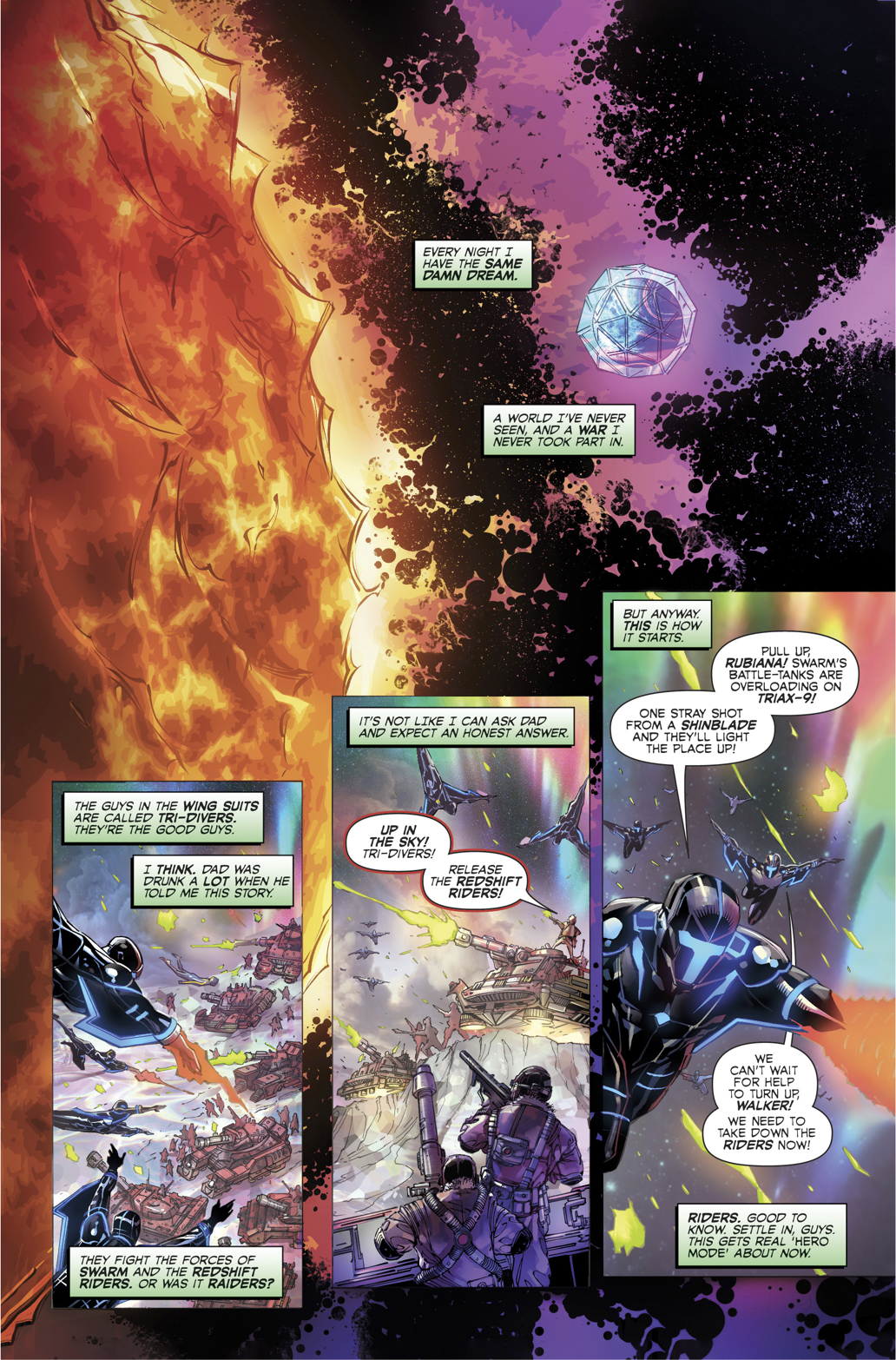
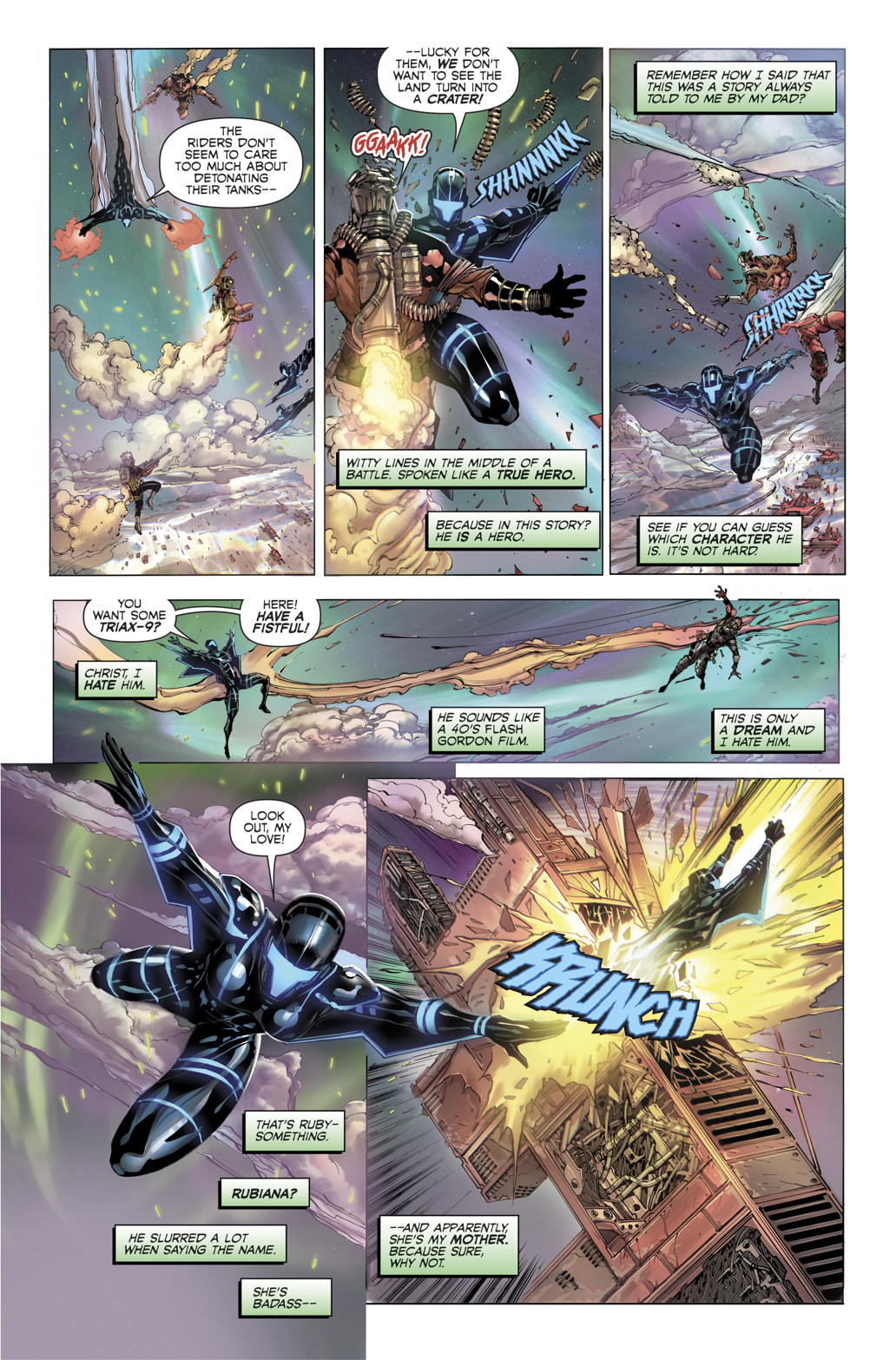
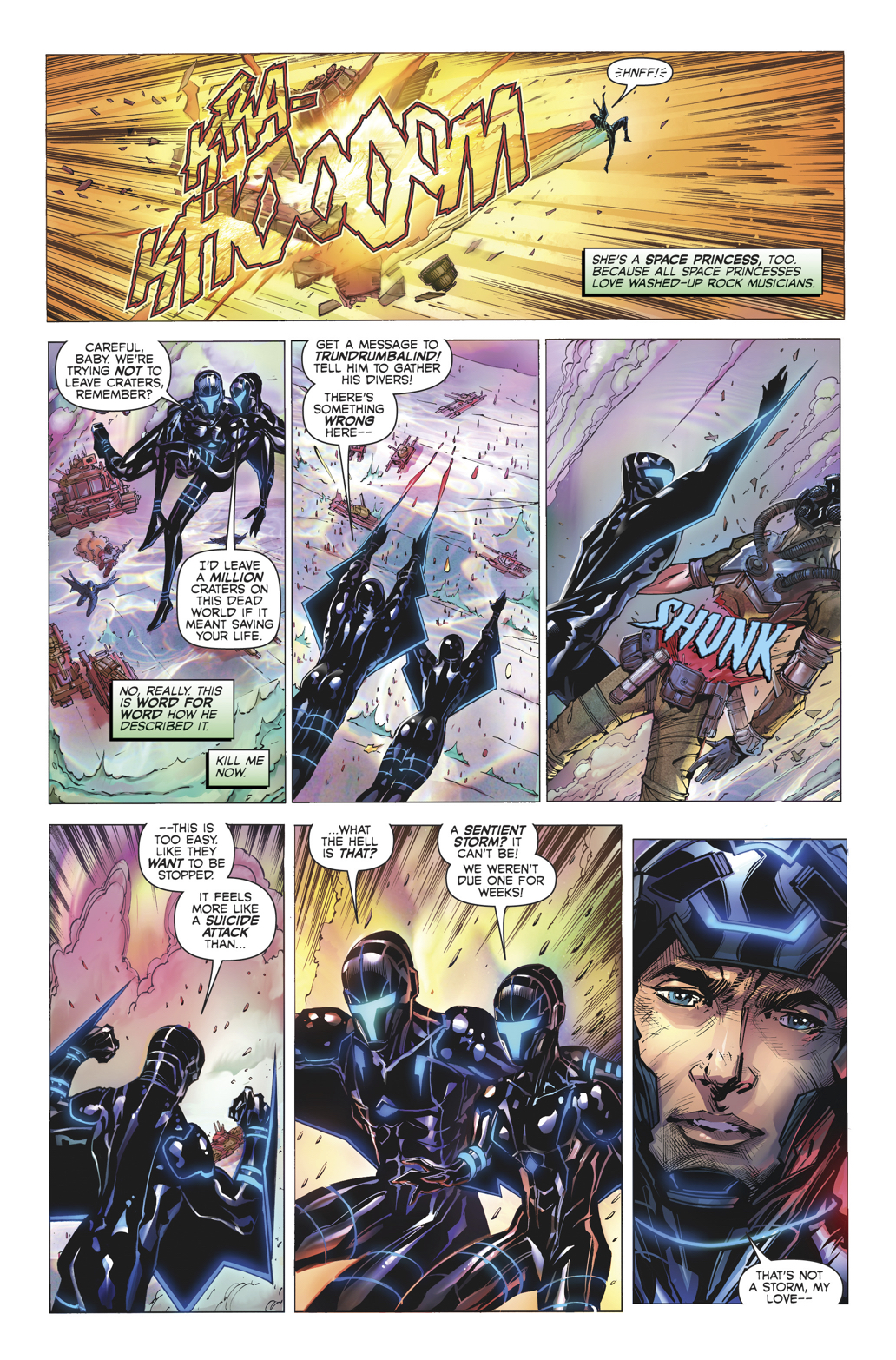

Space.com: That's awesome! "Crystal Planet" hits my favorite sci-fi buttons by being a time-traveling space odyssey. What were your inspirations behind the story?
Satriani: I love all science fiction. Think I started really falling hard for it when I wound up as a young kid with a Ray Bradbury collection of short stories. And oddly enough, I think it was the story of "The Illustrated Man." That hit me as just being so unique, because it was science fiction but it had nothing to do with aliens or, you know, stars exploding and time travel, and it was just so creative. And from there, I know it's a weird jump, but I got into Kurt Vonnegut Jr., and I also saw a lot of his work as being kind of science fiction in a way. He just broke down the barriers between social commentary, the actual structure of the novel and science fiction.
That led me to Philip K. Dick, and you know, it's a watershed; once you get into sci-fi writers, you realize that there's just so much great stuff out there. It is timely; when you go back and you read "A Door Into Summer" by Robert A. Heinlein, you go, OK, this is of its time, so you have to make a couple of excuses here and there. But the story in general pushes those buttons, it pushes my buttons the same way that I'm sure it does yours as far as the time travel and space and all those things that we know will come. Because really great sci-fi writers are really ahead of their time. They are visionary. And they tap into, I think, human potential. And that's what I think is so fascinating, why we get so excited by really good, well-written science fiction.
Related: Best sci-fi books: modern masterpieces & all-time classics

Space.com: So let's get on to the new record. I really need to know, why elephants on Mars?
Satriani: That started with an innocent moment. I had just created this song, trying to create some kind of otherworldly imagined landscape. For some reason, I came up with this noise that reminded me of gigantic elephants of some other origin, not Earth, you know. And that really stuck with me. And I sent the song to my producer, saying, "I really want to do this, but we need to expand it because the demo was maybe two and a half to three minutes long. But I wanted to turn it into this epic tune. And I said, "How about this? It's about these elephants of Mars, these elephants that get created when Earth scientists figured out a way to terraform Mars." They're very successful, but what they didn't realize is, they also created this race of sentient gigantic elephants that can communicate telepathically amongst themselves and to the New Earth colonists that are working the planet. But they get together with the leader of the colonists — who plays rock guitar, of course — and they decide to lead a revolution to create a free, independent Mars so that Earth's evil corporations don't, you know, steal all the raw materials for themselves.
And this was like the catalyst. Everybody in the band would laugh when I tell them the story, but it would give them artistic license to play humorously but with that sci-fi story in mind. And the fact that it's about these gigantic elephants, you know, you can't go wrong. It's like somebody's telling you, "You can do whatever you want; just keep gigantic elephants with rock 'n' roll music trunks, you know, blaring in the background." It really helped make the song happen. And then, of course, once the song happened, I realized this has to be the title of the album, because it's so funny. I liked the idea of delivering a new album with a big smile and a positive message.
Space.com: You brought that humor out for "The Elephants of Mars" video. It was fantastic.
Satriani: That comes from the brain of my son, [video director] ZZ Satriani. He independently just came to me with this idea. He said, "OK, I just want to check to make sure you're OK with this, but this is my idea." And, of course, I loved it. I always think that if a music video can be a completely new way of looking at a song, it's really a plus, especially if it's an instrumental song, where the meaning is really up to the fans. Once you give them the music, they can use it anywhere they want. So this is really another good way of putting a big smile on the song.
Space.com: Have you been following any of the recent missions to Mars? Did that help at all with the song?
Satriani: Well, yeah; I'll tell you what really helped was that when I was discussing the album cover with the art director, Todd Gallopo, there are a couple of things. Number one, I didn't want to be on the cover. I said, "Let's break the chain of doing these things." So we've done a lot of covers together, solo albums. He did the Chickenfoot stuff; he's really brilliant. And we started talking "Elephants of Mars," and let's go with a color scheme first. And we both said, "You know, it's funny, after watching all the clips from the missions to Mars, it's not really the Red Planet, is it? It's more like the orange planet. That got us started, and we can rethink this in a way and come up with colors that we think are actually more attractive, rather than trying to nail some kind of fictitious red color.
So that was the first thing, but Todd's idea, I think, of breaking things apart, also had a lot to do with the fact that what we see back from Mars, of course, is not a civilization or ruins of a civilization; we are seeing a planet kind of like in parts, in a way. And I'm sure when he was in his art studio and he was staring at a Chickenfoot guitar on the wall that we had given him many years ago, he was probably thinking elephants, guitar parts and just the fact that, wow, these images back from the rover, it really does look like the planet is in parts, you know. So I think it got him into the idea that he could represent the elephants in parts by using parts of guitars. That's the genius.
Space.com: There was another song on the album that really hit home with me, "Sailing the Seas of Ganymede." Was it the underground ocean on the Jovian moon that got the creative juices flowing? I hear that sonically. Can you tell me a little bit about what you did with that one?
Satriani: It's such a funny story; it really takes twists and turns. It got its start at the Jimmy Fallon show. I played, I think, twice. And each time you go there, you know, it's New York City, Rockefeller Center; it's a big network television show, and you go to do a little quick rehearsal in the afternoon, and you get led into the smallest room, I'm sure in the entire building. And the band — this big, wonderful band, The Roots — are packed into this teeny room. And it gets worse: Questlove, one of the drummers with the biggest personality and groove ever, is stuffed into another little compartment inside this room. And, boy, the first time I was there, I thought, this gotta be temporary, you know. And I'm literally right inside the door, standing with my back against the wall, and behind my calves is my little amp. And you basically have to stand like that. Because when people come in, you've got to get out of the way. And we rehearse a couple of songs, and then you go out and you do the show. Second time, same thing.
So when I'm flying home, I'm thinking, that's really funny; Questlove needs to be rescued and put in a situation that is more befitting his talent and personality. And for some reason, I thought he should be commander of his own sailing vessel. And he should be sailing some gigantic ocean going on the most ridiculous fantastic voyage. And you know, 200-foot swells, and he's up there at the front, commanding the ship. I had this image, and it kind of stuck with me. And eventually, I thought, that's not even exotic enough to rescue him from that little practice room. So I was reading about the underground oceans of Ganymede, and I thought, that's where he is; that has to be the most glorious, fantastical place to stick him. And then from there, again, working with a title like "The Elephants of Mars," it gives you this sort of crazy artistic license just to entertain any idea that comes to your mind. And so that song has got some really crazy twists and turns with fabulous performances from the whole band. Again, I think because of the title, they're all sort of inspired.
Space.com: Are there any other space- or sci-fi-related elements or song titles on the record that I'm missing?
Satriani: Well, sometimes, I think at the end of a record, like once I put in a record, it's my artistic nature to run in the other direction as quickly as possible and start something new, and clear my psyche of everything. And every once in a while, I remind myself, people see you as this guy [see image below]:
Satriani: And I think you got to do something to dispel that image. And I suppose every album has got a mix of all that kind of stuff on there. But I think that I didn't go into it thinking of titles, although the song "The Dance of the Spores" has got to be probably one of the craziest ones. In terms of imagining you're shrinking yourself down to their level, and experiencing them, not only being terrifying, but also having the time of their life because they have no other problems like we do — no politics, no pandemic, nothing. Think they're just having a great time on their little level of existence on the planet. But I think the song "Through a Mother's Day Darkly,"' although it doesn't sound like a science fiction title, we've got Ned Evett doing a voiceover from the "Crystal Planet" novel, so it suddenly sounds like a science fiction epic, like the beginning of a film or something like that. So yeah, I can't avoid it, because I love it. I guess I love science fiction.
Related: Best sci-fi movies of all time
Space.com: We definitely know that about you, Joe.
Satriani: Just one thing, though: I am frustrated that, after all this time of being such an enthusiast of traveling to outer space, that there is no ticket I can buy that will take me to the seas of Ganymede, or some other planet. I mean, the only thing we got right now is a couple of minutes of just getting to the beginning edges of space, which I find really frustrating. I mean, they should pay people to go on that journey. You know, they shouldn't charge us. But yeah, that's just my way of looking at it. Yeah, I want a ["Star Trek"-type] communicator, and I want warp speed.
Space.com: When you came to our Space.com offices, you were talking about surfing the rings of Saturn. That was one of the videos we put out:
For all you sci-fi buffs out there, be sure to check out "Crystal Planet" and "The Elephants of Mars." I can guarantee you won't be disappointed. Thanks, Joe; it's always a pleasure.
Satriani: Thank you so much. See you again soon.
Follow Steve Spaleta on Twitter and Instagram. Follow us on Twitter @Spacedotcom and on Facebook.

Steve Spaleta is Space.com's Senior Producer. Since 2007, Steve has produced and edited space, science and entertainment-related videos for Space.com. He is also the producer/writer/editor of Space.com's CosMix series on space-enthused artists. He studied psychology at the State University of New York at Stony Brook and is originally from Zadar, Croatia by way of Astoria, NY. To see Steve's latest project, follow him on Twitter and follow Space.com's VideoFromSpace YouTube Channel.
